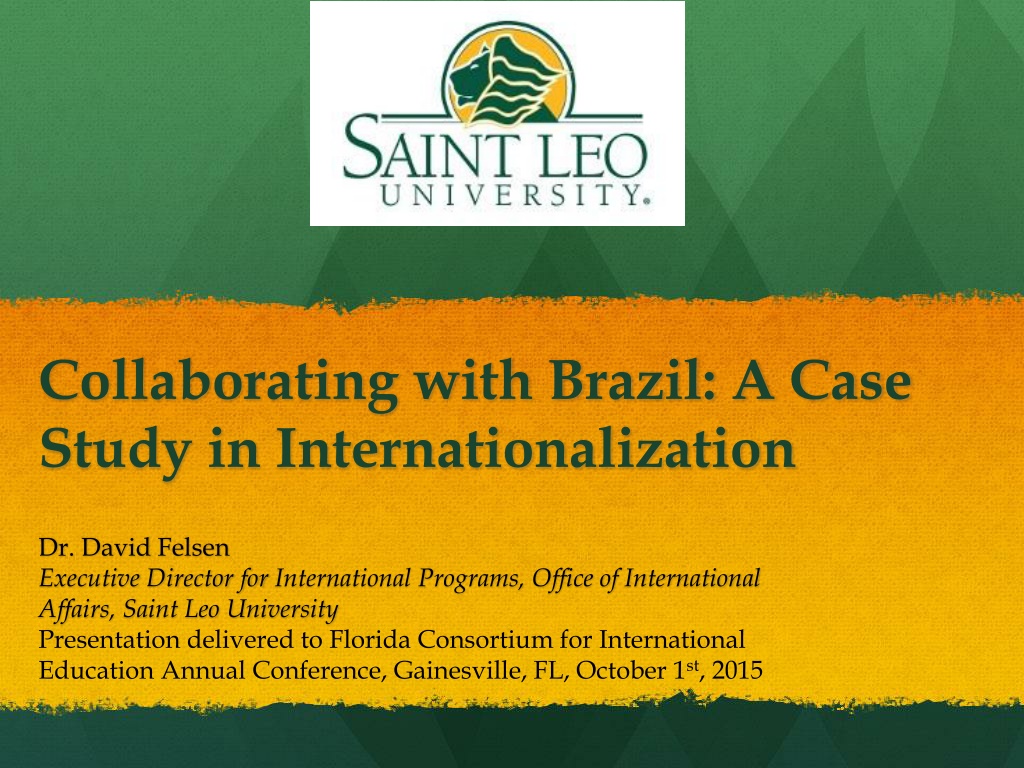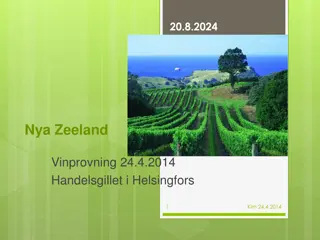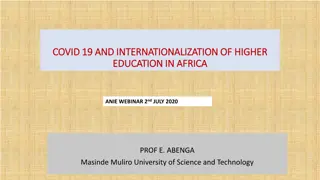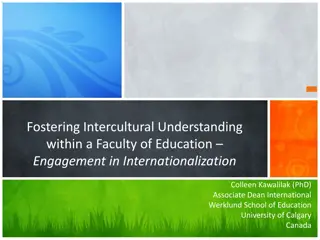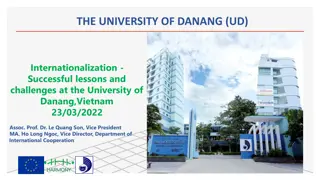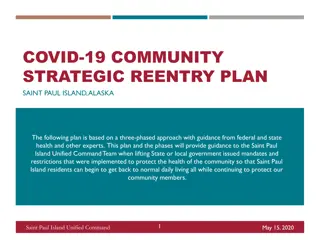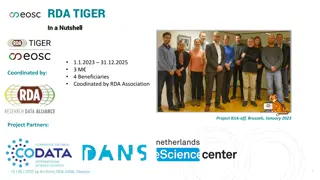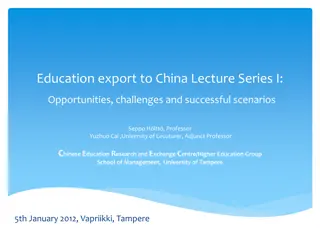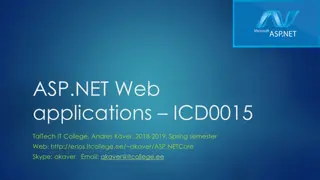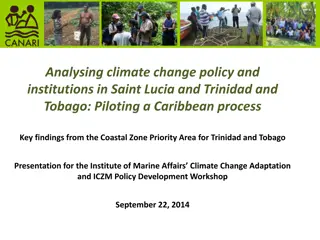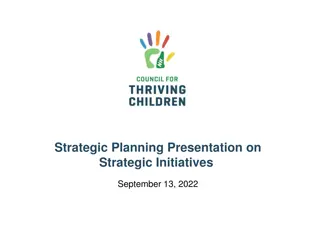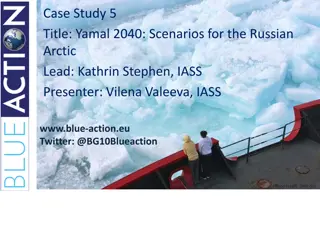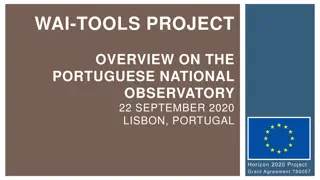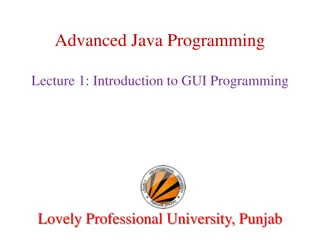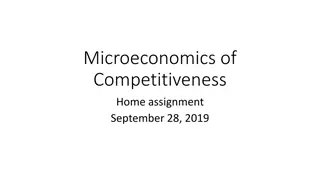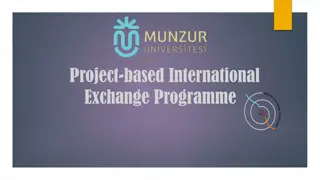Strategic Internationalization at Saint Leo University: A Case Study
Saint Leo University's strategic internationalization process, led by Dr. David Felsen, involves key goals such as enhancing student experiences, diversifying enrollments, and aligning university functions. The collaboration with institutions in Brazil and Panama, particularly with PUC-Rio, has led to strengthened partnerships, faculty-led programs, and increased international student numbers.
Download Presentation

Please find below an Image/Link to download the presentation.
The content on the website is provided AS IS for your information and personal use only. It may not be sold, licensed, or shared on other websites without obtaining consent from the author. Download presentation by click this link. If you encounter any issues during the download, it is possible that the publisher has removed the file from their server.
E N D
Presentation Transcript
Collaborating with Brazil: A Case Study in Internationalization Dr. David Felsen Executive Director for International Programs, Office of International Affairs, Saint Leo University Presentation delivered to Florida Consortium for International Education Annual Conference, Gainesville, FL, October 1st, 2015
Strategic Internationalization at Saint Leo University SLU seeks to become a Catholic University of International Consequence for the 21st Century Strategic process established a Key Results Area (KRA) committee to identify tasks in 2011-12 Associate Vice President of International Affairs appointed to lead internationalization mid-2012 Executive Director of International Programs appointed in early 2013 to operationalize internationalization
Strategic Internationalization at Saint Leo University Office of International Affairs opened early 2013 Internationalization Implementation Committee (IIC) formed in early 2013 to support Office Stakeholders from across university represented on IIC Executive Director presented multi-year strategic plan for internationalization mid-2013 to the President s staff
Key Goals of Internationalization Enhancing/increasing students international experiences Diversification/growth of student enrollments Communication of internationalization internally/externally Alignment of university functions/processes Training and development of faculty/staff
Some Key Results of Internationalization Strategic assessments/modifications of international relationships completed Direct/multi-faceted relationships with institutions prioritized Strategic plan prioritizes Latin America during first 1-2 years Strengthened partnership with PUC-Rio in Brazil faculty-led study abroad, collaboration, exchanges, conferences
Key Results of Internationalization Strengthened partnership with USMA in Panama faculty-led study, collaboration, conferences Faculty-led study abroad overall increased 200%+ since Fall 2012 International students grew by 35% since Fall 2012 Increased communication regarding internationalization- internal/external; opinion pieces; international press IIC steering committee supporting objectives
Key Results of Internationalization: Collaborating with Brazil- BSMP Brazil Scientific Mobility Program (Science without borders) participation Brazil government sponsors 100,000 science/engineering students Saint Leo received its first BSMP student in 2014- 15 and continues to participate in 2015-16 Enhances quality of Saint Leo student experience
Collaborating with Brazil: Study and Service Trips Abroad Annual faculty-led MBA trip to Brazil Annually connecting with our partner institution in Rio PUC-Rio Connecting with private sector and non- profit sector Regular community service trips for faculty and students to help in Brazil Bage, Brazil in 2014
Collaborating with Brazil: PUC- Rio Partnership Multi-faceted linkages with PUC-Rio partner PUC-Rio offers lectures to our MBA students on Brazil s economy PUC-Rio professors have participated as panelists at Saint Leo conferences PUC-Rio professor will be visiting professors at Saint Leo in spring 2016
Collaborating with Brazil: SLU-FGV-Strong Professional Training Experience Multi-faceted Brazil relationship permitted Brazil professional training experience Two-week experience offered in July 2015 offering briefings/lectures and site visits Collaborated with 2 Brazilian universities- FGV (Rio) and Strong Business School (SP) Saint Leo offered students a professional management experience in Tampa Bay/Orlando
Training Experience: Preliminary Stage Saint Leo developed its relationship with FGV leveraging its contacts in Brazil FGV is well known in Brazil for developing/ supporting short executive courses Saint Leo won a bid proposal as an international site FGV selected Strong Business School to collaborate with SLU on planning/logistics
Training Experience: Planning Stage SLU International Affairs office created an organizing committee Faculty experts were engaged to teach material Saint Leo community business partners were engaged in site visits The business school staff collaborated with the International Affairs office in planning
Training Experience: Execution Stage Briefings offered by professors at SLU campus Site visit - Technology management sector (Tech Data) Site visit - Hospitality management sector (private tour of Columbia restaurant in Ybor) Site visit - Sport management sector (private tour of Amelie Arena) Site visit - Entertainment management sector (Disney Corp.)
Training Experience: Execution Stage Site visit - Entrepreneurship sector (local business start-up incubator) Opening and closing events offered Accommodations, transportation, and meals provided Academic materials provided Cultural experiences provided (eg. Greek dinner in Tarpon Springs)
Collaborating with Brazil: Evaluation and Lessons Learned Benefits of strategic engagement with Brazil in multiple areas experience, branding Challenges of collaborating with multiple international stakeholders expectations Cultural benefits to students and faculty on both sides interactions, future enrollment Development of new type of program experience for SLU
Conclusions: Collaborating with Brazil and Internationalization Internationalization is complex and gradual and requires building relationships Outbound and inbound experiences further internationalization and global branding Multiple linkages with one country can help deepen internationalization Internationalization offers new program and collaborative opportunities
